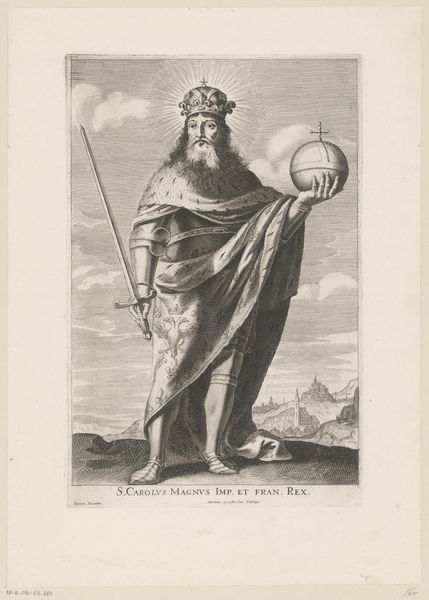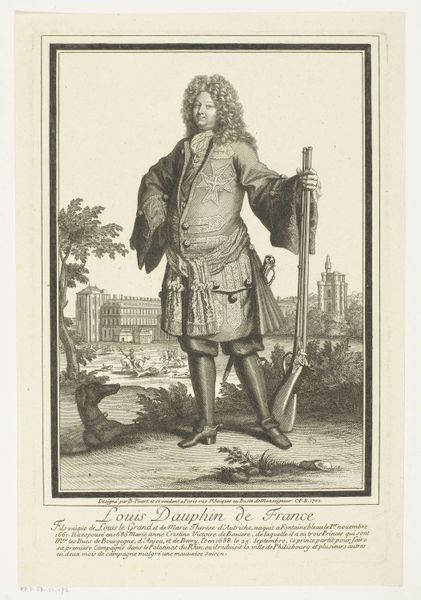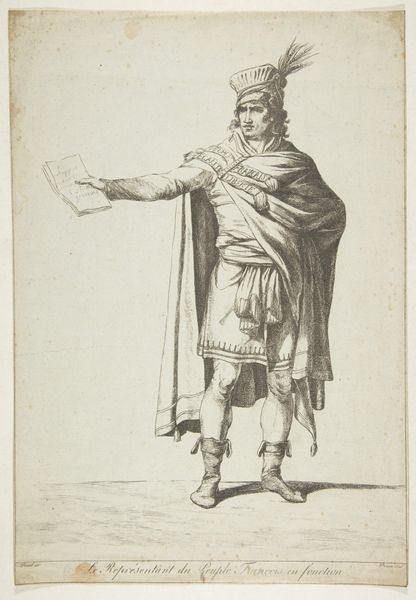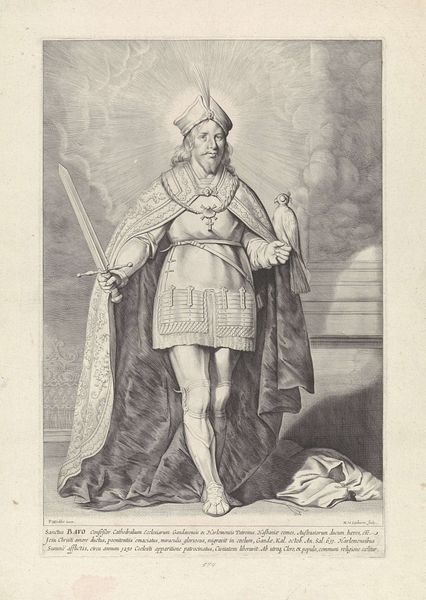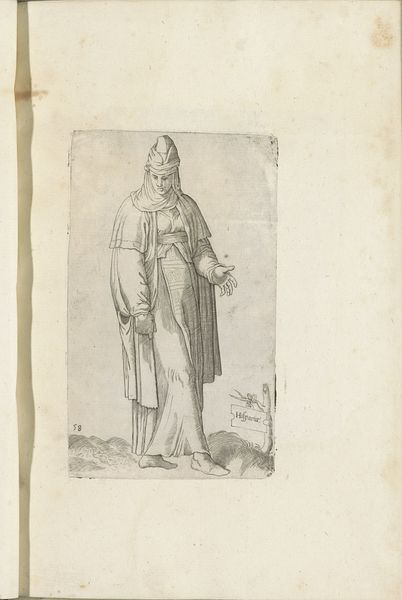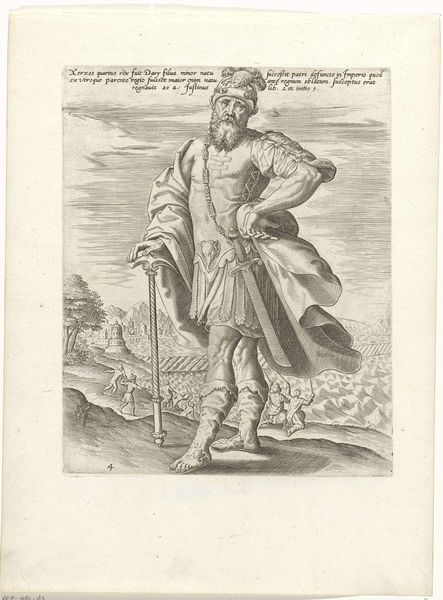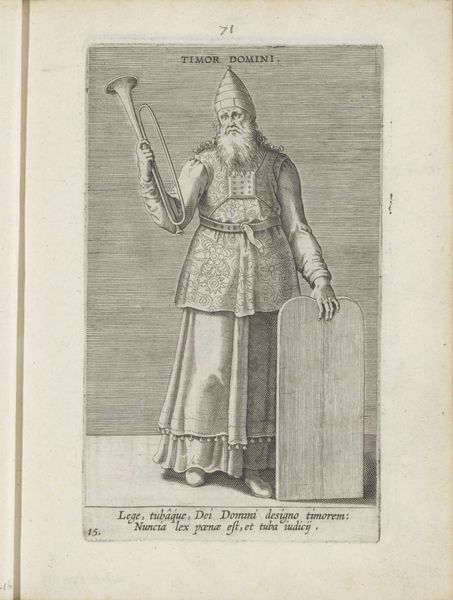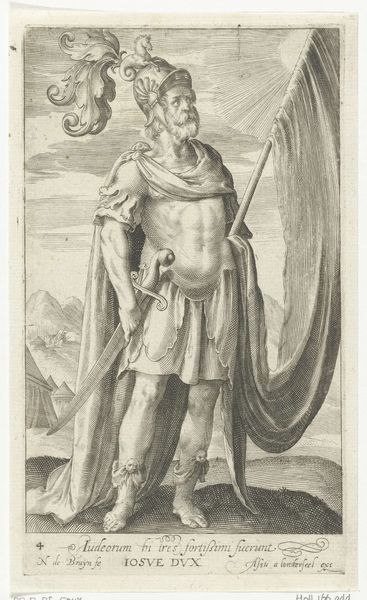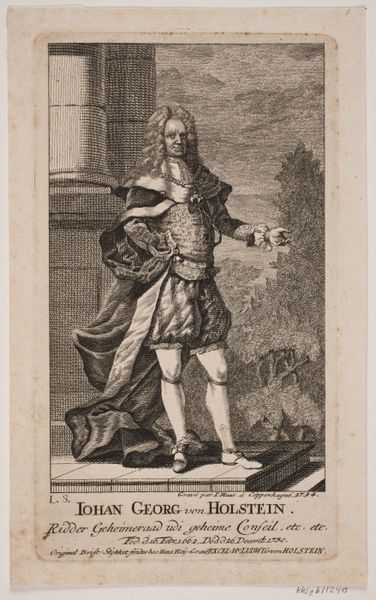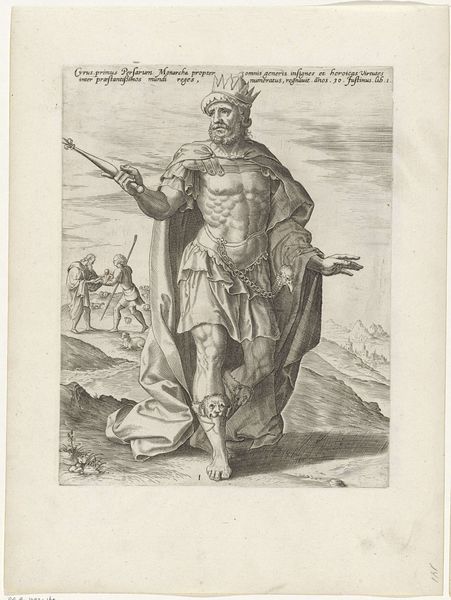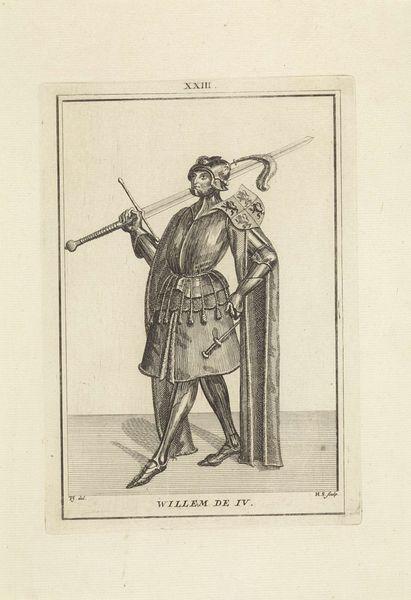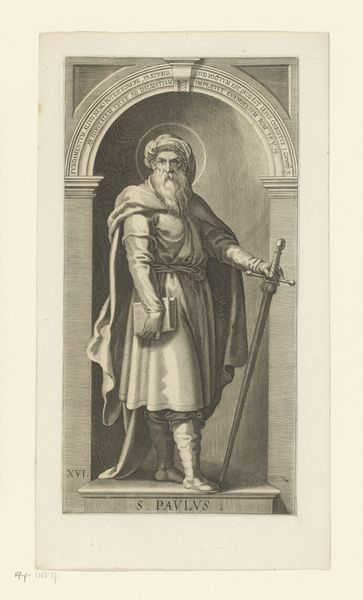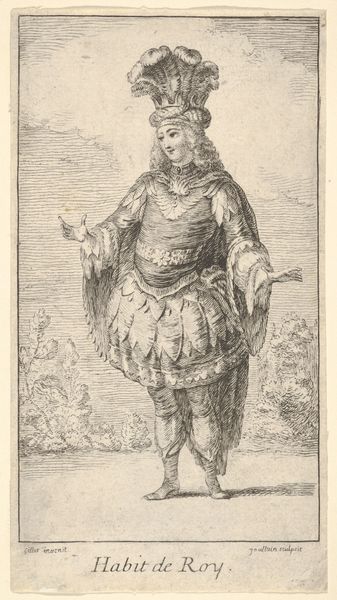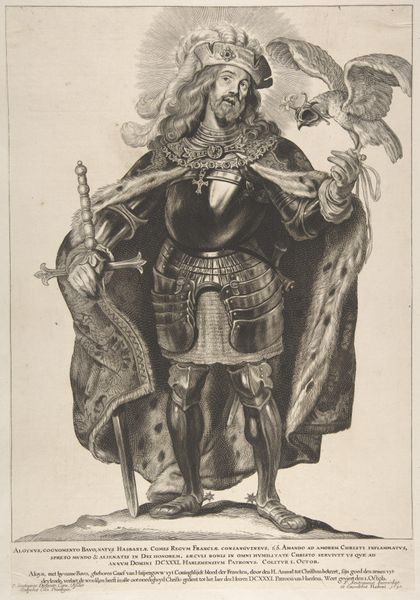
drawing, print, engraving
#
portrait
#
drawing
# print
#
romanticism
#
history-painting
#
engraving
Dimensions: height 129 mm, width 90 mm
Copyright: Rijks Museum: Open Domain
Friedrich Fleischmann created this portrait of Charlemagne using etching, sometime between 1800 and 1834. As we look, consider how history and power intertwine in this depiction of a ruler from centuries past, made during a time of political upheaval. Fleischmann, who lived through the Napoleonic era and the rise of nationalism, portrays Charlemagne as a noble and commanding figure, which speaks to the 19th-century desire to create national heroes. Representations of historical figures like Charlemagne often served to legitimize contemporary political agendas, linking them to a mythic past. He's adorned with symbols of power, and the image evokes a sense of authority and grandeur. Yet, this representation also raises questions about identity and legacy. How do we remember and represent figures from the past, and what purposes do these representations serve? Consider what this image says about power, representation, and the construction of historical narratives. It reminds us that history is not just a collection of facts, but a story we tell ourselves about who we are.
Comments
No comments
Be the first to comment and join the conversation on the ultimate creative platform.
